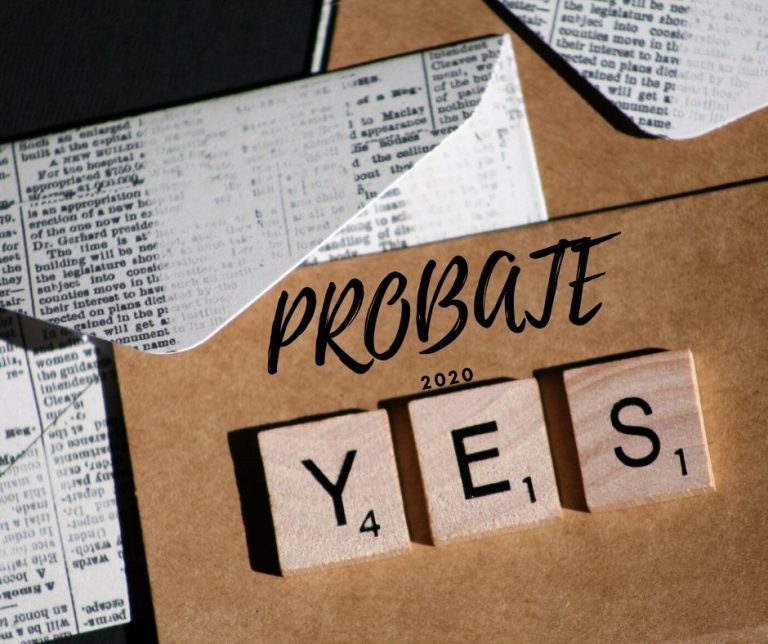SUMMARY OF FLORIDA PROBATE PROCEDURES
SUMMARY OF FLORIDA PROBATE PROCEDURES
When someone passes away as the sole owner of assets in Florida, a probate proceeding is typically required to resolve issues involving the division of those assets among the decedent’s heirs, beneficiaries and creditors.Estate state administration serves the purpose of ensuring the decedent’s assets are properly located, gathered, and then distributed to the heirs and beneficiaries after the decedent’s eligible creditors are paid.The type of administration to be utilized depends on a number of factors, including the value of assets as well as the type of holdings the decedent owned at the time of his or her death.Here is an overview of probate procedures Florida authorizes to effectuate distribution of estate assets among the interested parties.
FORMAL ADMINISTRATION
In a formal administration, a Florida circuit court judge presides over probate proceedings.Where there is a Last Will and Testament, the judge first rules on its validity and its admittance to probate.The Judge then appoints a personal representative, who is likely the person named in the will, or an heir at law where no will exists.In the petition for administration, the identity of the heirs are listed along with a general description of the assets of the estate. The probate judge will then issue ‘Letters of Administration’ to the Personal Representative.These Letters grant the personal representative the legal authority to administer the estate on behalf of the decedent. Periodically, there are filings that must be made within certain deadlines, like the estate inventory which must be filed within 60 days of the issuance of the Letters of Administration.A notice to creditors also needs to be published announcing, in a local paper, that the decedent has died and that anyone who has a claim against the estate must file a claim within three months, or their claim will be forever barred. The personal representative must also file and serve an accounting on the beneficiaries, disclosing all of the money that has come into the estate.Additionally, the personal representative will file a petition for discharge which will include a plan of distribution and a schedule of all money paid to any professional providing services to the estate including attorneys and the personal representative.Alternatively, a beneficiary can sign a waiver, waiving in whole or in part, the requirement to prepare a final accounting and the filing of other documents in the estate, like the plan of distribution and receipts from the beneficiaries.
SUMMARY ADMINISTRATION
“Summary Administration” is an alternative to the full formal administration of a Florida probate estate.Here, no personal representative is appointed by the court.The petitioner, and not a personal representative, locates the assets, disposes of the probate assets and pays the creditors (if any).The petitioner is typically either a beneficiary named in the will, the person named as a personal representative in the will, or an heir at law where no will exists.A probate lawyer is not required to seek this type of administration. This summary probate procedure is available if (1) the decedent has been dead for two years or more and the estate has not been probated, or (2) the value of the Florida estate subject to probate (i.e., excluding exempt property like the decedent’s homestead) is no more than $75,000 in value and the decedent had no outstanding debts (or the creditors do not object to a summary administration).In addition, the Will (if any) cannot preclude summary administration as a means for administering the estate.The process begins with filing a petition for summary administration.The petitioner also must file the Death Certificate and will.The petition must be verified and otherwise follow the requirements of Florida probate statutes.The petitioner also submits proposed orders for the probate judge’s consideration. The will is admitted to probate just as it is done in a formal administration.However, summary administration is simpler and less costly than a full, formal probate of the decedent’s estate.The primary drawback to those inheriting the estate, however, is that they remain liable (pro rata) for any claims that may be made against the decedent’s estate for a full two years after the decedent’s date of death.
DISPOSITION WITHOUT ADMINISTRATION
The second alternative to a full formal administration of a decedent’s estate in Florida is “Disposition Without Administration.”Like Summary Administration, there are only select estates that can utilize this procedure.Specifically, the decedent’s probate estate assets must either be exempt from creditor’s claims or their value totals less than (1) the total of preferred funeral expenses; and (2) the reasonable and necessary medical and hospital expenses incurred in the final 60 days of the decedent’s death. Like summary administration, a probate lawyer is not necessary to seek this type of administration. This procedure is initiated by the interested party making a written request to the court, typically in the form of an affidavit. The probate judge will consider the submission and determine whether the guidelines for a Disposition Without Administration are satisfied.If so, the Court will issue an Order authorizing the payment, transfer, or disposition of the personal property, tangible or intangible, belonging to the decedent to those persons entitled.
Lynx Legal is here to assist to be sure that you are prepared to handle whatever tasks are required when you or a loved one dies.Regardless of the procedure, we are here to help guide you through the process and ensure your estate administration documents are in order.Call us today at +1 888-441-2355 to speak to one of our representatives, or alternatively, send an email info@lynxlegal.com and we’ll get back to you as soon as possible.
